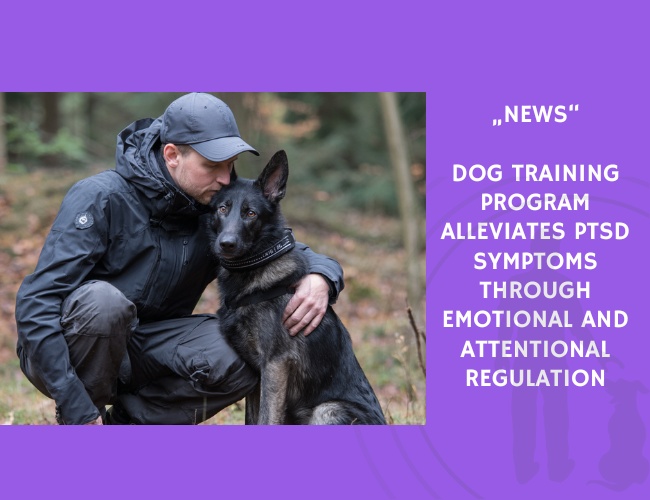Inon Maoz et al. (2021) investigated whether participation in a structured dog-training program could help adolescents clinically diagnosed with post-traumatic stress disorder (PTSD). The study included 53 trauma-exposed youths, divided into a dog-training group (n = 30) and a control group (n = 23) engaged in non-animal-related training such as cooking or hairstyling.
Key Findings:
- PTSD reduction: After 12 months, adolescents in the dog-training group showed significant alleviation of PTSD symptoms, with measurable improvements in emotional and attentional regulation.
- Depression improvement: Participants in the dog-training group also reported lower depression severity, as assessed by the Beck-Depression Inventory.
- Control group contrast: Adolescents in the control group displayed minimal recovery, emphasizing the unique impact of animal-assisted training.
- Dog welfare impact: While humans benefitted, participating dogs showed increased anxiety and decreased selective attention, suggesting welfare considerations must be addressed in program design.
Implications: The findings highlight that dog training can serve as an evidence-based complementary therapy for PTSD in both civilians and veterans. The program directly influenced diagnostic outcomes, positioning it as a viable alternative or adjunct to pharmacological treatments. However, researchers stress the importance of balancing human benefits with dog welfare, as the stress on participating animals must not be overlooked.
Conclusion: This study demonstrates the potential of dog-training interventions in addressing the core dysregulations of PTSD. By targeting emotional and attentional regulation, such programs can provide long-term improvements in well-being while broadening therapeutic strategies beyond medication.
Source: Maoz, I., Zubedat, S., Dolev, T., Aga‐Mizrachi, S., Bloch, B., Michaeli, Y., Eshed, Y., Grinstein, D., & Avital, A. (2021). Dog training alleviates PTSD symptomatology by emotional and attentional regulation. European Journal of Psychotraumatology, 12. Authors: Inon Maoz, Shany Zubedat, Tamar Dolev, Shiran Aga-Mizrachi, Baruch Bloch, Yael Michaeli, Yossi Eshed, Dana Grinstein, Abraham Avital. Journal: European Journal of Psychotraumatology.










